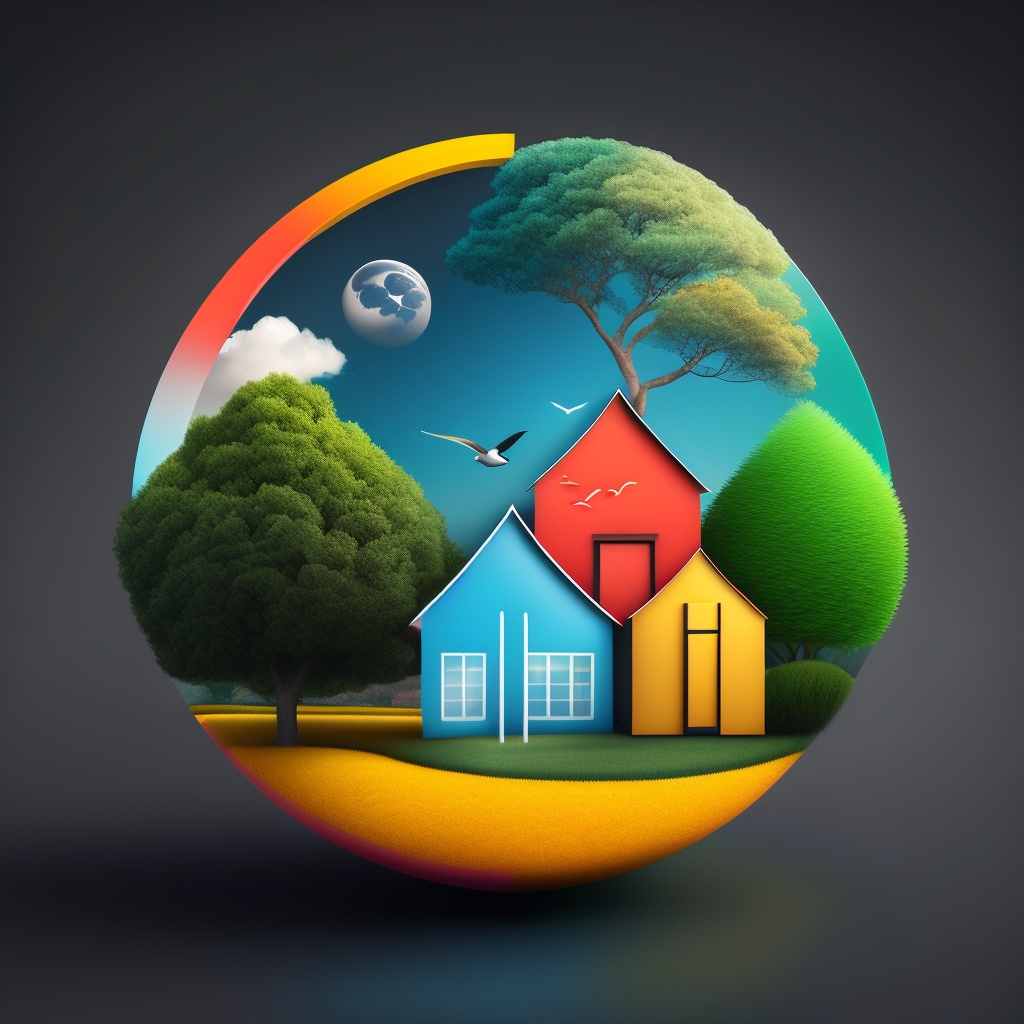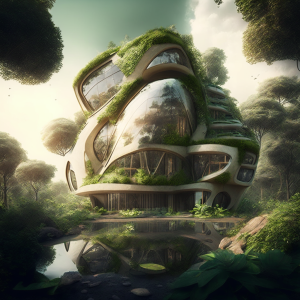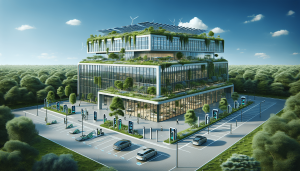Introduction
Earth. Our celestial home that’s been a bit too forgiving with its wayward children. It’s time to rectify our mistakes, don’t you think? Time to buckle up and explore sustainable development, our magic bullet to keep this cosmic party going.
Understanding Sustainable Development
What is it?
Picture this: sustainable development is like an all-you-can-eat buffet, but instead of growing your waistline, we’re looking to grow economies, improve social welfare, and protect our beautiful planet. It’s the equivalent of a heavenly trifecta where the house always wins.
So what exactly is this golden goose? The United Nations explains it as the ability to meet our present needs without compromising the ability of future generations to meet theirs. In essence,it’s the ultimate pledge to pay it forward, the principle that keeps on giving. It’s a commitment to balance our needs today with those of the future, so our kids and grandkids don’t end up picking up our tab.
Why It Matters
Now, you might be wondering, why should we care? Think of it like the internet. Could you live without it? Probably, but would you want to? Probably not. And that’s how critical sustainable development is.
It’s our ticket to reducing poverty, maintaining economic stability, and ensuring that the planet remains a habitable place for all life forms. It’s our chance to correct the missteps of the past and chart a course for a future where everyone can thrive.
In essence, sustainable development is not just about surviving—it’s about flourishing. It’s the difference between just living and living well, between merely existing and truly thriving.
Pillars of Sustainable Development
Economic Sustainability
When we talk about the pillars of sustainable development, the first stop is economic sustainability. It’s like that rockstar party planner who ensures the shindig is both exciting and affordable.
Economic sustainability ensures we’re spending our planetary budget wisely, promoting economic growth and equality that keeps the party going for future generations. It aims to make the pie bigger and distribute it more equitably—because it’s no fun when only a few guests hog all the goodies.
But how do we achieve this? By creating systems that promote stable economic growth while maintaining the integrity of our environment. It’s like balancing your checkbook while also saving for the future—a juggling act of the highest order.
Social Sustainability
Next up in our sustainability tour, we have social sustainability. It’s the beating heart, ensuring everyone gets a fair shake in this game of life.
Think of social sustainability as the compassionate, caring soul at the party who ensures everyone is having a good time. It ensures universal access to basic human rights—education, healthcare, a decent standard of living—you know, the essentials.
Social sustainability advocates for a fair distribution of resources, strong community relationships, and equal opportunities for all. It’s all about making sure that the party isn’t just for the privileged few but for everyone, no matter their circumstances.
Environmental Sustainability
Last, but by no means least, we have environmental sustainability. It’s the protective parent at the party, ensuring no one’s causing any irreparable damage.
Environmental sustainability is about nurturing our planet—protecting our natural resources, preserving our ecosystems, and preventing biodiversity loss. It’s about ensuring that the party doesn’t trash the house, and that we can wake up the next day without regretting the mess we’ve made.
How Sustainable Development Transforms Lives
Sustainable Development in the Economy
So, how does sustainable development impact our lives? It’s like that one smart decision you made to ditch your daily Starbucks and make coffee at home, leading to a surprising amount of savings.
By using resources wisely and promoting sustainable practices, sustainable development can stimulate economic growth, create more jobs, and reduce poverty. It’s like the domino effect but in a good way—creating a ripple of positive changes that can transform economies and lift people out of poverty.
Sustainable Development in Society
In society, sustainable development acts as the glue that holds everything together. By ensuring a fair distribution of resources, promoting social cohesion, and fighting for equality, sustainable development helps create stable, inclusive societies.
Imagine a society where everyone has equal access to education, healthcare, and economic opportunities. It’s like that feeling when the entire team works together to score a goal—everyone benefits, and everyone feels a sense of belonging and achievement. That’s what sustainable development can do for society.
Sustainable Development in the Environment
Ever escape the city for a weekend and take that deep, cleansing breath of fresh air? Now, picture that but on a global scale. That’s what sustainable development aims for.
By protecting our environment, promoting renewable resources, and mitigating the impacts of climate change, sustainable development ensures our planet remains livable for future generations. It’s not just about maintaining the status quo—it’s about improving it, ensuring a healthier, cleaner planet for everyone.
Implementing Sustainable Development
Policies for Sustainable Development
Putting sustainable development into practice is akin to planning a road trip. We need to map out the best route (create comprehensive policies), fill up the tank (provide necessary funding), and pack the right snacks (educate the public).
It’s about planning, execution, and course correction—finding the best strategies, implementing them, monitoring their progress, and tweaking them as necessary. It’s a continuous, ongoing process that requires long-term commitment and consistent effort.
Community Participation in Sustainable Development
But sustainable development isn’t just a task for governments or big organizations. It’s a collective responsibility, and we all have a part to play. From making eco-friendly choices to advocating for sustainable practices in our communities, each one of us can make a difference.
Just like a group project, it’s not just about the final result—it’s about how we get there. So let’s roll up our sleeves, dive in, and make sustainable development a reality.
The Future of Sustainable Development
Emerging Trends in Sustainable Development
The future of sustainable development is brighter than a 1000-watt bulb. Think green cities, sustainable agriculture, and a circular economy. It’s about driving innovation, pushing boundaries, and striving for a better future.
The train of sustainable development is gaining momentum, and it’s set to revolutionize how we live, work, and play. And with every individual, community, and country on board, there’s no telling how far we can go.
Role of Technology
In the era of digital revolution, technology plays a pivotal role in sustainable development. It’s like the secret sauce in our sustainability recipe, providing the tools and means to monitor environmental conditions, improve resource efficiency, and promote green technologies.
From AI to IoT, technological advancements can help us tackle the biggest challenges of sustainable development, making it a viable, attainable reality. In short, it’s a game-changer, and it’s reshaping the sustainability landscape as we know it.
Teaching Our Kids: A Legacy for the Future
Once upon a time, not so long ago, “sustainable development” might as well have been an alien language. Fast forward a few decades, and it’s become a buzzword, a beacon of hope, a rallying cry for a planet under siege. From being a phrase lost in the environmentalist jargon, it’s emerged as a global movement, a vision of a world that can thrive in harmony with nature.
The Unheard Phrase of Yesterday
If we rewind time to our school days, we might recall some hard-core lessons about photosynthesis, the water cycle, or even the structure of an atom. But sustainable development? That would have probably drawn blank stares all around. Back then, it was about ‘progress’ and ‘growth,’ with little thought spared for the ‘sustainable’ bit.
Now, don’t get me wrong, we weren’t evil or callous. We were simply naive. It’s like trying to make sense of a sitcom when you’ve only seen the pilot episode. We hadn’t seen the full story yet—how our actions were harming the planet, how our growth was costing the earth.
The Reality of Today
But today, the game has changed. Sustainable development isn’t just a lofty ideal—it’s become a necessity, the key to unlocking a future where we don’t have to choose between economic growth and environmental preservation.
It’s not just about ‘going green’ or ‘saving the pandas’—though, trust me, pandas are super cute and totally worth saving. It’s about the bigger picture—ensuring decent jobs, equality, justice, and a healthy planet for all. It’s about understanding the interconnectedness of our actions and their impacts and making conscious decisions that align with our long-term survival and well-being.
The Necessity of Tomorrow
That’s why teaching our kids about sustainable development is like giving them a golden ticket to the future—a future where they’re not just bystanders but active participants and drivers of change.
Just think about it. Our kids will inherit this planet, along with the challenges that come with it—climate change, inequality, poverty, you name it. Arming them with knowledge about sustainable development is like equipping them with a compass in a complex world. It’s preparing them to navigate the challenges, to make informed decisions, and to play their part in building a sustainable future.
By instilling the principles of sustainable development early on, we’re shaping our children into responsible, informed citizens who understand their role in the larger ecosystem. It’s like teaching them the ultimate life skill—one that transcends reading, writing, or arithmetic. We’re teaching them to care about the world they live in and to take action to protect and nurture it.
The Knowledge of the Future
And let’s be real, the jobs of the future will demand this knowledge. As more industries move towards sustainable practices, understanding sustainable development will become an essential skill, not just a fancy add-on. It’s like the new-age ABCs—a basic foundation that every kid needs to thrive in the 21st century.
In this rapidly changing world, teaching our kids about sustainable development is no longer an option—it’s a responsibility. Because the future belongs to them, and what we teach them today will shape the world of tomorrow.
Remember, sustainable development isn’t a sprint—it’s a marathon, a collective journey toward a brighter, greener, and fairer world. And our kids? They’re not just passengers on this journey—they’re the future drivers. So let’s equip them with the knowledge, skills, and values to steer this ship towards a sustainable future. Because in the end, the greatest legacy we can leave our children is a world capable of sustaining, nurturing, and delighting them, just as it has for us.
Conclusion
Sustainable development is no longer just a choice—it’s a necessity. It’s our only ticket to a prosperous, equitable, and eco-friendly future. Like a jigsaw puzzle, each piece is crucial, and it’s only when we fit them all together that the picture becomes clear.
Sustainable development is a journey, not a destination. It’s a commitment to a better tomorrow, a pledge to pass on a healthier, happier planet to the generations yet to come. It’s our chance to leave a lasting legacy—a world that’s not just survived, but thrived.
Frequently Asked Questions
What are some simple ways I can contribute to sustainable development?
Think globally, act locally. From recycling and composting to conserving water and reducing energy consumption, every small step counts. Choose sustainable brands, advocate for green policies, and educate others about sustainable practices. Every action makes a difference.
Why is sustainable development important for businesses?
Sustainable development offers a wealth of opportunities for businesses. It drives innovation, enhances brand reputation, promotes long-term viability, and creates new markets. Plus, it’s the right thing to do—for the planet, for society, and for the future of business.
Is sustainable development realistic?
Absolutely! With the right policies, technologies, and public participation, sustainable development is not only realistic—it’s inevitable. It’s our roadmap to a future where everyone can thrive without depleting our planet’s resources.
How does sustainable development reduce poverty?
Sustainable development tackles poverty from multiple angles. It promotes economic growth and job creation, ensures access to basic services like education and healthcare, and supports vulnerable communities. In short, it’s a comprehensive, multi-pronged approach to poverty reduction.
What is the role of education?
Education is a powerful tool. It equips people with the knowledge, skills, and values to make sustainable choices. It fosters awareness, encourages action, and creates future leaders for sustainable development.




